So your dog has a chewing problem?
A common situation that many dog owners encounter is when their pup develops a chewing problem. Maybe your best friend takes to eating your shoes or couch or even your underwear. There may be no apparent rhyme or reason to explain your dog's oral fixation but with a little bit of digging, you can hone in on the issue. It's normal for dogs to chew, they need to! But excessive chewing, sudden chewing, inappropriate chewing, or even biting can be a signal to dog owners that there is something else going on.
Some reasons your dog or puppy may have aggressive chewing behavior:
- Anxiety (new home, change in environment, trauma)
- Separation
- Anxiety
- Hunger
- Teething
- Boredom
- Lack of Exercise
- Calling for Attention
- Sore Gums

If the reason for your dog's chewing problem could be one or all of the reasons listed above, so this problem can be a bit complex. If the reason is not apparent then we always suggest consulting your vet.
To share a personal story, when I was a kid we had the most beautiful german shepherd named Rex. His first-year he began to develop a chewing problem, but not a normal teething puppy chewing problem. Rex did not chew shoes or destroy his chew toys, instead, he chewed on rocks or the wall. Of course, we took him to the vet, and we were informed that Rex had severe hip dysplasia, and his chewing as a result of arthritis - was his attempt to get more minerals into his body. This was devastating news for our family but it was the information we needed to help us understand the root of the chewing problem. Once we identified why he was gnawing on walls and rocks we were able to begin to address the underlying issue. For the purposes of this blog, we will not go into each possible scenario of why a dog may have a chewing problem. Instead, this blog will focus on how a pet parent can redirect a dog's gnawing so that it is not destructive more constructive.
This simple three-step approach I learned from a dog trainer should help you to solve your gnawing problem.
Identify - Redirect - Reinforce

Step 1: Identify The Reason Why
As with a lot of things in life, the first step is the hardest, but also the most crucial. Once you know the reason behind your dog's chewing you will be able to take the correct steps. The cause of the chewing problem may not clear at first and maybe for a totally different reason than you suspect. So do plenty of research and as a lot of questions to better understand what your dog's mouth is trying to tell you.
Step 2: Redirect
Whatever the underlying cause of the chewing issue, the second step is always to redirect. As a pet owner, redirect in the right way appropriate to the cause of the chewing. The redirection can take on many forms. For example: Maybe you have a puppy who is cooped up for too many hours of the day is has developed destructive chewing or puppy biting. Take this little puppy out for some exercise! After your exercise session, give your puppy a proper chew that should love gnawing on and give plenty of praise!
Maybe you have a dog that is anxious and chews on your shoes during rainstorms. Before the rain arrives provide the dog with a long-term dog chew that will take him hours to get through so that during the storm he will be more interested in the chew than in a shoe. Bully Sticks and Antlers are great long-lasting entertainment for dogs to gnaw on.
Maybe like my Boy Rex, your pup has a nutritional deficiency in which case you would want to provide chews and supplements to give the pup relief. Remember that dogs can not communicate with words so it is important as owners that we learn to read into the non-verbals that our pups are constantly giving us.
Step 3: Reinforce
Just like we do with children we should also positively reinforce the behaviors that we want in our dogs. So provide plenty of praise when your dog is gnawing on a chew you have provided. Give them lots of love and hugs to let them know they are doing the right thing, they have chosen the appropriate chew toy! Remember that the dogs in our lives aim to please and that they want to make us happy. We are their leaders and they seek our approval. The other side of reinforcement is using a simple spray to teach the dog that when they are chewing on something they should not be. A bitter spray to ward them off usually does the trick. A spray that works well in our home is a simple mixture of water and vinegar. At Nature Gnaws we always recommend the gentle approach with our dog, we never use any physical punishments to teach our dogs. Instead, praise (pawsitive reinforcement) when they are doing what we want and ignore or the spray bottle when they are not.
Please remember that the reason for the chewing may originate with you the owner. If you are not giving the dog exercise or nutrition that it needs to grow and live a healthy productive life then the discipline provided when the dog is chewing will only be confusing to the dog. Please take the time to identify the source of the chewing problem (Step.1) then proceed to the next steps to resolve the issue. We hope this article sheds some light and provides a path to resolve your pup's gnawing issues.
Need help finding the right Chew? Reach out to Nature Gnaws Customer Service and we will be happy to help!



